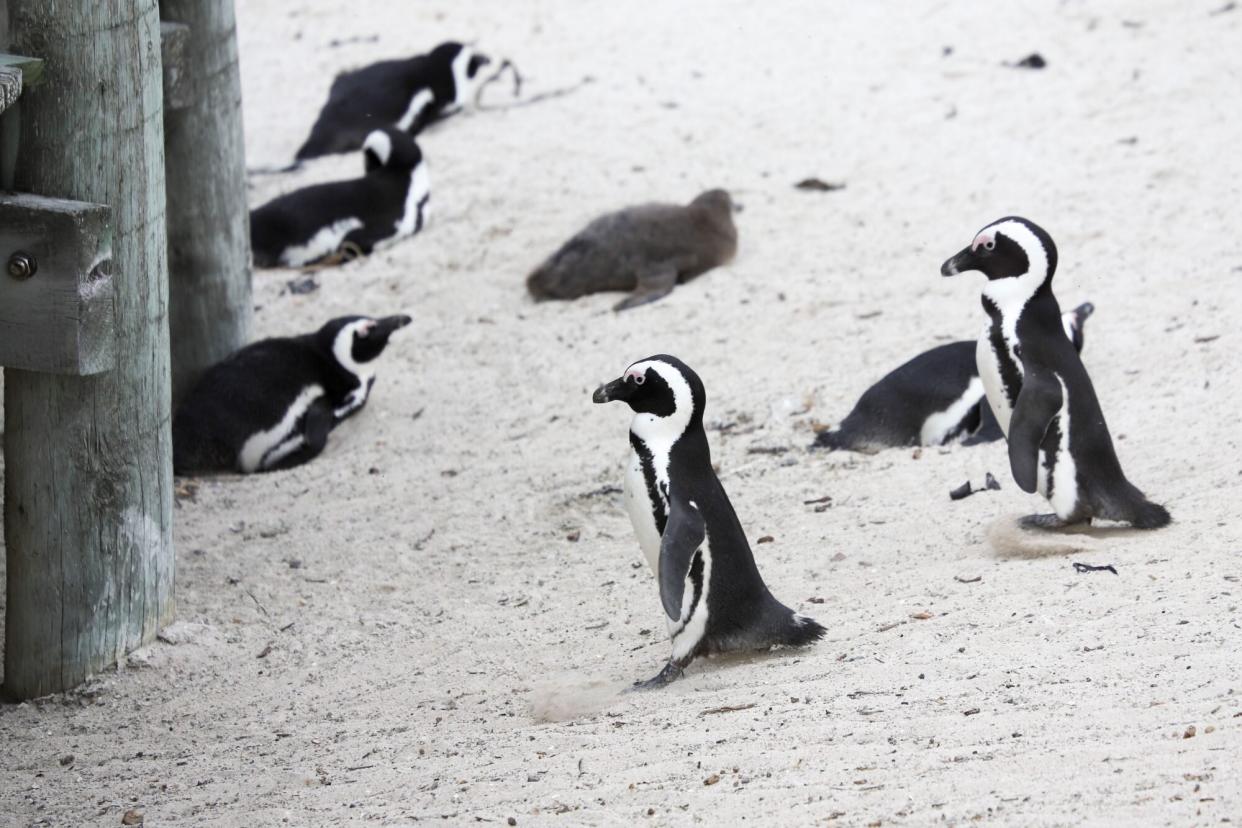Endangered Penguins Killed by Bee Swarm on South African Beach: 'A Fluke'

Xinhua/Lyu Tianran via Getty
Dozens of endangered penguins are dead in South Africa after being attacked by a swarm of bees last week.
CBS reports that 63 endangered African penguins died inside the Boulders African penguin colony in Simonstown, South Africa. The Conservation of Coastal Birds announced the deaths first, and Table Mountain National Park shared the sad news on Facebook Saturday.
The penguins, who likely died sometime between Thursday afternoon and Friday morning, were discovered Friday and transported to the Southern African Foundation for the Conservation of Coastal Birds (SANCCOB) "for post-mortems — and biological samples were sent for disease and toxicology testing," the park stated.
The penguins did not have any external injuries, but post-mortems "revealed that all the penguins had multiple bee stings, and many dead bees were found at the site where the birds had died."
Investigators looking into the deaths suspect that a swarm of Cape honey bees killed the penguins. However, "samples are still being tested for other toxicity possibilities and diseases to rule out any other potential cause."
David Roberts, a clinical veterinarian with SANCCOB, confirmed to AFP that bee stings were found around the animals' eyes.
"This is a very rare occurrence," he said. "We do not expect it to happen often; it's a fluke."
He added, "The penguins... must not die just like that as they are already in danger of extinction. They are a protected species."
Officials from South Africa's national parks said the bee attack was the first known incident of its kind to occur at Boulders Beach, per BBC.
"Usually the penguins and bees co-exist," marine biologist Dr. Alison Kock, who works with South Africa's national parks agency, told BBC.
She added, "The bees don't sting unless provoked — we are working on the assumption that a nest or hive in the area was disturbed and caused a mass of bees to flee the nest, swarm, and became aggressive."

 Yahoo Movies
Yahoo Movies 
